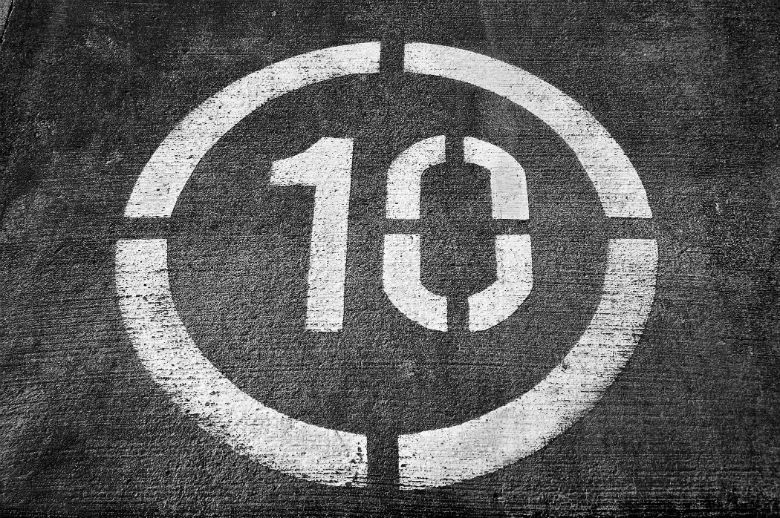In contemplation of Noah Baumbach’s Marriage Story, a worthy Best Picture nominee that is painful to watch yet too immersing to look away from…

Noah Bambauch has been making films since the ‘90s, but for many it was 2005’s arthouse dramadey The Squid and the Whale that distinguished him as an exceptional writer and director. The semi-autobiographical film deals primarily with the fallout from the divorce of protagonist Walt Berkman’s parents, and thematically and stylistically it has many similarities to the films of one of Baumbach’s contemporaries, Wes Anderson. Like Anderson, Bambauch relishes in exploring themes of family dysfunction and its subsequent satirical drollery. The Squid and the Whale is the film where viewers first became familiar with Baumbauch’s movie-making style, including dryly humorous dialogue, deliberately awkward character juxtaposition, and a plot driven by tumultuous character arcs that can be both funny and cringe worthy at the same time. Over the years there were other noteworthy and thematically similar films in Bambauch’s body of work, such as Margot at the Wedding, Greenberg, and While We’re Young, but it is his most recent film, Marriage Story, that has recaptured that feeling a viewing something that is painful to watch yet too immersing to look away from. While The Squid and the Whale primarily deals with the aftermath of a painful divorce, the plot of Marriage Story is more about the actual harrowing process of two people’s shared life unraveling, and just how difficult it can be to remain civil when one’s world seems to be coming apart just when life started to seem so full of promise.
Something Baumbauch handles aptly in Marriage Story is the way in which he shifts back and forth between the paradigms of his two main characters, Charlie (Adam Driver) and Nicole (Scarlett Johansson), setting them each up as alternating protagonists/antagonists. When viewers are following Nicole’s story, they sympathize with her plight — her unrealized dreams sacrificed for Charlie’s ambition, her pain at the knowledge that Charlie cheated on her. But when the narrative shifts and viewers start seeing things through Charlie’s lens, it begins to seem like he’s the real victim of the uncoupling. When Nicole hires a ruthless divorce attorney (played by Laura Dern) to keep her and her son living on the west coast, not only does it threaten Charlie’s aspirations while he’s at the height of his career, but it limits his ability to see his own son on a regular basis. Only when he hires his own cutthroat attorney (played by Ray Liotta) does the conflict start to escalate to the point where viewers are waiting to see which one of these two embattled spouses will take things too far. This play on viewers’ sympathy is a trick that is not easily pulled off, but Baumbauch handles it with finesse.
Marriage Story, like Bambauch’s previous films, has a formulaic way of keeping character interactions free of high emotion until the plot comes to such a boil that someone eventually can’t take anymore and lets fly with a vociferous outburst. Nicole and Charlie both take psychological abuse — from each other, from each other’s lawyers — and viewers wonder how they manage to remain cordial while under fire when most people would have lost their cools and released a scathing diatribe. But Nicole and Charlie repeatedly kick each other and continue to take it until one of them snaps, in this case Charlie, where he tells Nicole in a charged tirade that he wishes she were dead. Similar to the way in which The Squid and the Whale’s Walt goes off on Joan at the film’s apex (“Fuck off, Joan!”), Charlie repeatedly takes licks from Nicole or her lawyer over the course of Marriage Story, and he takes them lying down, until he doesn’t. At that point he says things to Nicole that no person should ever say to anyone, much less someone you once professed to love with all of your heart. But the raw pain of divorce and all of its ugly, underhanded arbitration tactics are what the director wants to convey here, and in this he is successful. It would be too hard for many viewers to watch if it weren’t for the frequent and necessary humor embedded within the plot.
One might argue that the title of Marriage Story is misleading, for from the very onset of the film the viewer is introduced to a matrimony that is already in its death throes. Perhaps the title of the film is meant to evoke musings on why two people choose to get married to begin with — what our expectations for each other are, how we reconcile our own dreams with those of our spouses when they seem in conflict with one another. Or maybe the title is meant to highlight the finite nature of a union that was never meant to last. There will always be engrossing stories told in film that end with “And they lived happily ever after…,” but Noah Bambauch seems to thrive on exploring how we keep moving forward when things don’t work out for us, when all we can do is pick up the broken pieces of our lives and start over. And Bambauch is a good fit for telling this type of story, for he always leaves us with a feeling that life can and will go on, and moving on is more attainable than we allowed ourselves to believe when everything seemed so bleak. A hard lesson to learn for sure, but one that’s always underlying with hope.





